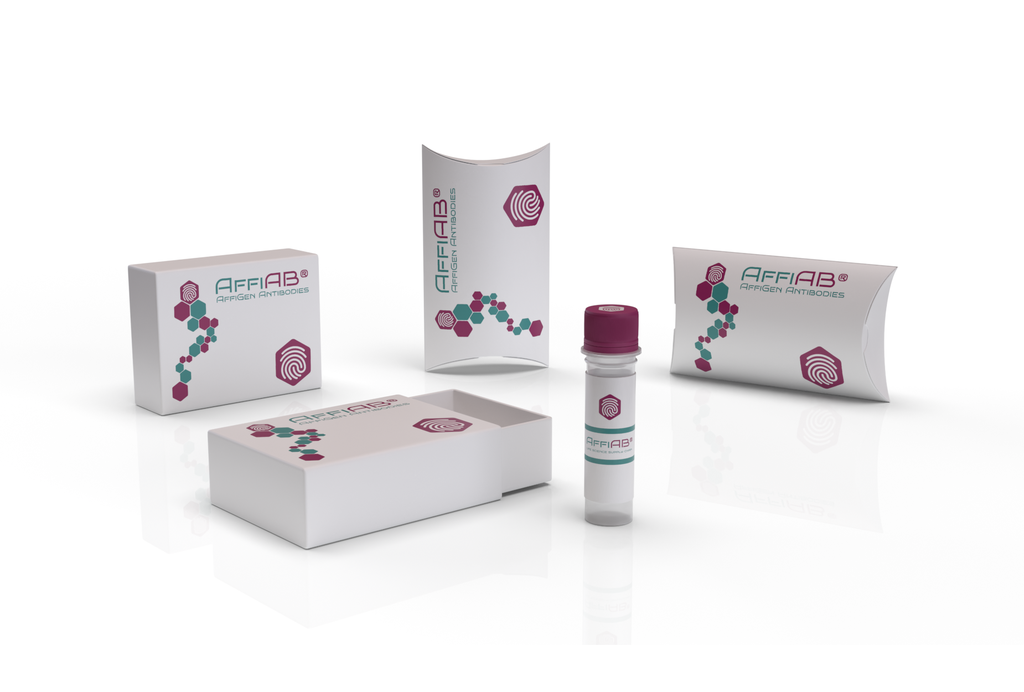AffiAB® Anti-ZFP-42/REX-1 Antibody
Rex1 (Zfp-42) is a known marker of pluripotency, and is usually found in undifferentiated embryonic stem cells. In addition to being a marker for pluripotency, its regulation is also critical in maintaining a pluripotent state. As the cells begin to differentiate, Rex1 is severely and abruptly downregulated. During embryogenesis, the inner cell mass (ICM) is separated from the trophoblast. The stem cells derived from the ICM and trophectoderm have been found to express high levels of Oct3/4 and Rex1. As the ICM matures and begins to form the epiblast, and primitive ectoderm, the cells in the ICM have been found to be a heterogenous population, with varying levels of Rex1 expression. Rex1−/Oct3/4− triggers trophectoderm differentiation, while Rex1+/Oct3/4+ cells predominantly differentiate into primitive endoderm and mesoderm. Also, Rex1−/Oct3/4+ cells differentiate into cells of primitive ectoderm, the somatic cell lineage. Studies have shown that PEG3 and Nespas are downstream targets of Rex1. Rex1 can control the expression of Peg3 via epigenetic changes. YY1 has been shown to be involved in setting up DNA methylation on the maternal allele of PEG3 during oogenesis. Rex1 was found to protect the paternal allele from being methylated, and keep the PEG3 gene unmethylated during early embryogenesis. Rex1 exhibits gene control in developing embryos via its epigenetic control on genes such as PEG3, which has been identified as playing a key role in fetal growth rates. The only adult tissue Rex1 has been identified in are the testicles. Using in situ hybridization it was determined that the spermatocytes in the more inner layers of the testicles are expressing Rex1. Thus, the male germ cells undergoing meiosis are the specific cells in the testicles that express Rex1. It has not been observed, however, that Rex1 is expressed in the female germ cells.
Antibody type
Rabbit polyclonal Antibody
Uniprot ID
SwissProt: Q96MM3 Human
Recombinant
NO
Conjugation
Non-conjugated
Host
Rabbit
Isotype
IgG
Clone
N/A
KO/KD
N/A
Species reactivity
Human
Tested applications
WB
Predicted species reactivity
N/A
Immunogen
Synthetic peptide within Human ZFP-42 / REX-1 aa 261-310 / 310.
Storage
Store at +4°C after thawing. Aliquot store at -20°C or -80°C. Avoid repeated freeze / thaw cycles.
Form
Liquid
Storage buffer
1*PBS (pH7.4) , 0.2% BSA, 40% Glycerol. Preservative: 0.05% Sodium Azide.
Concentration
1 mg/mL.
Purity
Immunogen affinity purified.
Signal pathway
N/A
Recommended dilutions
WB: 1:5, 000
Molecular Weight
Predicted band size: 35 kDa
Subcellular location
Nucleus.
Positive control
D3
